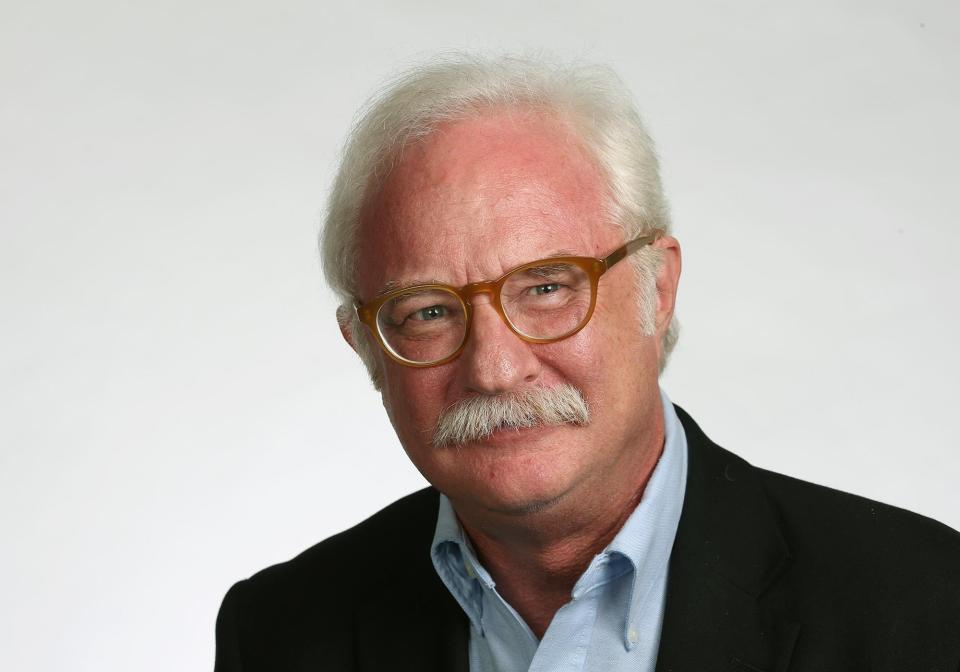Mark Lane: Legislators want to push university president searches out of the sunshine

Whenever Florida legislators take an interest in universities that doesn't involve football, it's usually bad news. And this session, legislators are interested in all things educational. Schools and universities are the major fronts in the Culture War.
Last session, there was a proposal to cut off financial aid to college students in the liberal arts and humanities. This year, the Legislature is interested in university governance. Specifically, that the public — and especially faculty — is getting too much information when it's time to choose university presidents.
A bill to turn university president search committees into secret conclaves (SB 520, HB 703) has been filed yet again. This bill pops up almost every year that some part of the state university system posts a want ad for administrators. Legislators filed bills like this in seven out of the previous eight legislative sessions.
More Mark Lane:
UF's interference with expert witnesses smells like politics
UF trustees fire back at profs in controversy over testifying
Bill supporters say Florida's broad public records law discourages heavyweight but publicity-shy applicants. And with the presidencies of the University of Florida, University of South Florida, Florida International University and the University of North Florida all open, search committees are getting themselves in gear.
Lots of opportunities. And Florida has a rich tradition of legislators, when facing down term limits and looking for a new perch in the Florida Retirement System, suddenly developing an interest in the future of higher education.

An interest that tends to push out people who are, you know, actually professional educators.
As a journalist, and therefore a person who supports the Sunshine Law and public records laws, I believe that forcing aspiring university presidents to learn the extent of Florida's public records laws is an excellent step in finding out if a candidate is up to operating in the open in a publicly supported institution. A learning experience, as it were.
If they get the job by huddling with a few key donors and political party machers and then blindside the faculty by their sudden anointment, they are likely to misunderstand how open government works, blunder into legal troubles, and start the job under a cloud of community suspicion. If having their names appear in the media during selection makes them nervous, are they ready to be a university's public face? The public nature of the selection process is a job-placement test that shouldn't be waved.
Worries about political pressure
As it is, Florida faculty, especially at the University of Florida, are chafing under what they see as increasing political demands from state politicians and large donors. After the university prohibited three professors from giving expert testimony in a voting rights lawsuit last October, administrators were accused of silencing faculty to aid the governor's office. University administrators reasoned that what's bad for Gov. Ron DeSantis is bad for the state, and what's bad for the state is bad for the university; therefore, permission was denied because testifying would be "adverse to the university's interests as a state of Florida institution."
Faculty sued, and last Friday, U.S. District Court Mark Walker granted them a preliminary injunction accompanied by a scathing opinion that compared university administrators to Hong Kong educators who knuckled under to Chinese Communists' dictates. Harsh. ("If those in UF's administration find this comparison upsetting, the solution is simple. Stop acting like your contemporaries in Hong Kong," the judge wrote.)
The ruling singled out Trustee Chairman Mori Hosseini's comments dressing down faculty last December. "Chairman Hosseini's remarks made plain that UF was beholden to the Florida Legislature and that it would not permit its faculty to continue offending lawmakers in Tallahassee by 'advocat(ing) personal political viewpoints to the exclusion of others,'" the judge's order noted.
This dispute has caused some to fear that the behind-the-scenes selection process envisioned by this legislation could install more career politicians as university presidents before objections can be effectively voiced. The kind of administrators who would consider further clampdowns as part of the job.
The bill to take university presidential searches out of the sunshine purports to solve a problem that doesn't exist. There's no lack of strong candidates putting themselves forward. And worsens a problem that does exist: Undue partisan political pressure on higher education.
Mark Lane is a News-Journal columnist. His email is mark.lane@news-jrnl.com.
This article originally appeared on The Daytona Beach News-Journal: Florida legislators try to keep university head searches private | Lane

 money
money 